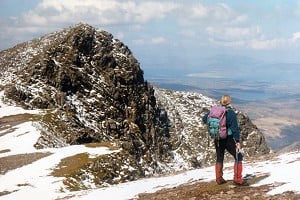
Now more than ever before, the outdoor industry is talking about mental health. With campaigns and initiatives appearing all over the UK, we are becoming more open to conversations, increasing our understanding and awareness. Perhaps we could keep the conversation going by talking about eating disorders in the outdoors?
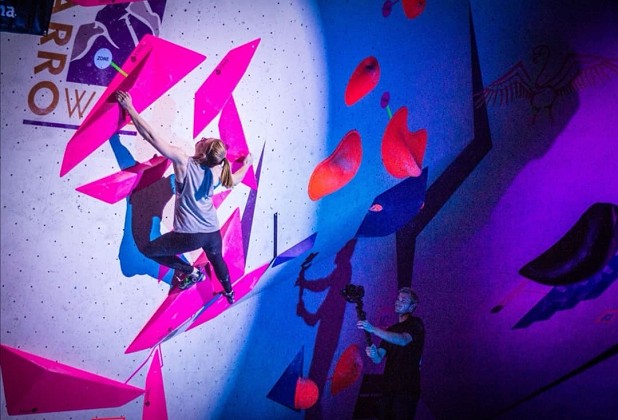
Recurring ideas of what an 'authentic' athlete should be led to feeling not good enough
In an industry where people put their bodies under immense pressure, are constantly active and training for the next adventure, event or competition, food is central. On social media, in magazines, books and out in the hills we hear of fell runners and ultra-marathon runners consuming huge amounts of calories to fuel their adventures. In climbing, of athletes adjusting their diets to become lighter to help send hard-as-nails routes. It is important to note that increasingly members of the climbing community are realising that 'lighter-is-better' is not necessarily the case but some still hold this view. It is easy to see how in these situations, there is a risk that unhealthy relationships with food could develop.
If the outdoor community wants to help tackle the issue it's vital that we understand better what eating disorders are and how we might be able to support ourselves and others who could be struggling.
I interviewed two athletes who have struggled with eating disorders: endurance athlete and author of Icefall and Another Peak, Alex Staniforth:
And with Abbie Robinson, GB Paraclimbing Squad member:
Both Abbie and Alex opened up about their journeys with food, life as athletes, and the comfort they have discovered in the outdoors.
Healthy exercise is a wonderful tool for dealing with of stress and anxiety. For Abbie, climbing outdoors with friends is restorative, as it brings joy back to the sport and allows her to spend time in nature. Alex uses road and fell-running as a management tool to maintain a healthier relationship with food
But first let's talk about what eating disorders are. We tend to associate eating disorders with issues relating to body image but in reality they are far more complex than this alone. Often, but not always, they come about as an attempt to deal with emotional and stress-related difficulties. They also frequently exist alongside other mental health conditions such as anxiety, depression, OCD and personality disorders. Some of the most common disorders that you might have heard of are anorexia nervosa, bulimia nervosa and binge eating disorder (BED). The symptoms can be diverse including depriving oneself of food, purging behaviours, only eating at certain times of day and physical effects, for example decreased body weight. The eating disorder charity Beat has some fantastic resources on their website that break down what different kinds of eating disorders are and how to recognise symptoms.
Disordered eating can also include these behaviours. While disordered eating is not the same thing as an eating disorder, the two can overlap, and it can sometimes be hard to recognise when an individual is experiencing either disordered eating or an eating disorder.
It is important to be clear on the information but sometimes it can sound a little clinical. By talking to Abbie and Alex, I've gained some insight into what it's really like to experience a difficult relationship with eating.
For Abbie, it started when she moved to university, living in a new city, and being entirely responsible for her own food and nutrition for the first time. Abbie found this period in her life very unsettling but was able to use control over food to compensate for feelings of anxiety and lack of control in other aspects of her life. She described her relationship with food as a combination of yo-yo dieting and a strict rules and punishment system. When Abbie felt happier and more relaxed in life generally, her connection to food was healthier, but at times of upset and change, food was used as a coping strategy.
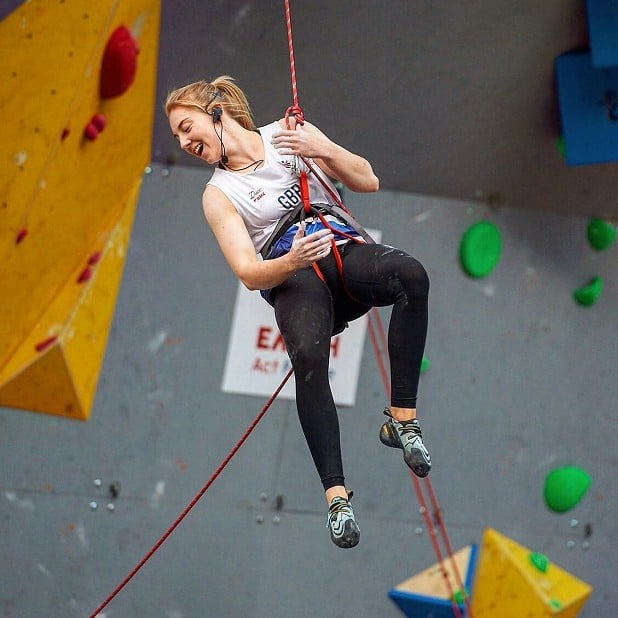
Alex has battled mental health challenges since his teenage years. He found that getting injured and being unable to run for several months led him to take control of his diet and obsessively restrict so-called 'bad foods' after researching what a 'better athlete' should be consuming. This was to be detrimental to his relationship with eating, resulting in Alex developing bulimia nervosa and BED.
Alex was eventually medically diagnosed with an eating disorder but Abbie has never been diagnosed. More recently, it has become clear to Abbie that, over the past few years, she had been presenting disordered eating behaviours symptomatic of Orthorexia. Orthorexia is not officially classed as an eating disorder, but rather an anxiety disorder than is related to the need to eat only 'pure' foods.
This article talks of eating disorders and disorderly eating under the same umbrella of a problematic relationship with food. Every individual who struggles has a different experience but the methods of help and support that we can learn fall under this broad umbrella. Alex expressed his thoughts on the potentially problematic nature of labelling – "I think that labels can add power to your problem, so much so that they can become part of your identity." Regardless of how or if somebody has been diagnosed, or chooses to use a 'labelling' term or not, we need to endeavour to be more mindful and aware of what people could be going through - especially in a physically and mentally intense outdoor industry.
In his book Another Peak, when training for his next big challenge, Alex writes that obsessively focusing on nutrition and improving his diet would turn out to be the unhealthiest thing he could ever do. Alex believes that his existing perfectionist tendencies in combination with low self-esteem and the physiological impact of restrictive eating were a precursor to his eating disorder. Feeling like he had failed to adhere to a 'strict' athlete's diet led him to binge. Alex felt that if he had already failed, what was the point in eating well?
Abbie explained that her experience was of a dysfunctional connection to eating that changed form at different points throughout her journey; very restrictive eating, compulsive food tracking/logging, eating at certain times of the day, obsessive fasting and using exercise as punishment. We need to wipe away any preconceived ideas of what an unhealthy relationship with food looks like, as they can manifest in very different ways. Abbie was keen to highlight that she found it hard to face that she had a problem because she didn't lose any visible weight. She felt that because she was not 'super skinny,' surely she didn't have a real issue, but of course realised later on that this was not the case.
Both Abbie and Alex revealed that they have at many moments compared themselves to others. These recurring ideas of what an 'authentic' athlete should be led to feeling not good enough. After joining the GB Paraclimbing Squad, Abbie applied a huge amount of pressure on herself to eat a certain way. When she met new people and they learnt that she was on the team, she experienced many comments relating to severe training and nutrition plans. This only strengthened her resolve to eat 'properly' - she felt that she needed to prove that she belonged on the team. Readiness to compare ourselves to other human beings is natural, which is something that both Alex and Abbie feel is magnified by the presence of social media. Social media allows us to compare ourselves 24/7 if we want to.
Alex believes that if you suffer from an eating disorder, seeing what other athletes and outdoor adventurers are eating can be damaging and create unhelpful references. Abbie also pointed out that it is dangerous to take nutritional advice given on social media at face value. She realised that she had been taking in a lot of misinformation on social media, and that it is best to seek nutritional advice from a trusted source.
Comparing ourselves to others on social media will make us feel inadequate by default. You might see an image of an athlete's meal, but we don't know if they actually ate all of that food, or if they added more. We don't know what else they had eaten or what training they had done that day. We can never see the full picture of a person's life online and therefore comparisons can never be accurate, and they can never be helpful. If the images and content that somebody is sharing online make you feel uncomfortable about yourself, then you have every right to unfollow them. Your own mental wellbeing should take priority and we have the power to choose how we use social media. Alex suggested that we should all strive to be more aware of the impact that our online image can have on others, especially so for influencers. Or, sometimes, to just enjoy experiences for ourselves and leave the internet out of it. The outdoors has the power to provide this enjoyment and escape.
Opening up about mental health can feel intimidating at the best of times and in Alex's experience, being honest about his eating disorder felt even more challenging. Alex told me that the details of his eating disorder are quite unpleasant to physically experience and as a result, he has in the past found discussing these details difficult. He believes that there is less stigma surrounding eating disorders than there used to be, but still a definite awkwardness, particularly as men and when expected to be 'mentally tough'. This can sometimes make it difficult for family and friends to know how best to help a loved one who is struggling. I asked both athletes what had been helpful or unhelpful in terms of the support they had received.
Abbie is grateful that she received therapy, acknowledging that it can be difficult to take that initial step but for her it was a step well worth taking. She found it helped her work through her deep-rooted issues with eating: "I would recommend everyone gets therapy, even if you don't have an eating disorder, it's just so helpful!" she beamed. Understandably though, not everyone is lucky enough to access therapy.
It isn't a new concept but simply talking about what you're going through can be helpful. As a supporter, Abbie stressed that it is important to just listen and accept, not to share an opinion or try and force advice. She recounted experiences of feeling panic and guilt after being told that she had eaten a 'good' amount. Sometimes, it was the other way around, if it was suggested Abbie eat a little more, she felt satisfied that she had successfully restricted her food intake for the day. Attempting to address the physical symptoms of an unhealthy relationship with food is harmful, as it takes control away from the person suffering. Abbie said that the best thing for her was to be asked "what can I do to be helpful?" and for her answer to be accepted. Social enterprise Mental Health First Aid England advises that you should encourage professional help, but not to try and force change on somebody.
The outdoors is a powerful tool that can help us both physically and mentally. Alex advocates having a sense of purpose and bringing it 'back to basics' on whatever scale we choose. Abbie uses the technique of grounding when walking. By engaging with all her senses, she feels calmer and present in the outdoors. This technique has helped her to more effectively manage anxiety and stress. A good old fashioned 'walk-and-talk' is another great way to implement the power of the outdoors. Having the opportunity to chat in a safe, relaxed and open environment helps us feel more at ease. This can take the intensity out of what can sometimes feel like nerve-wracking conversations.
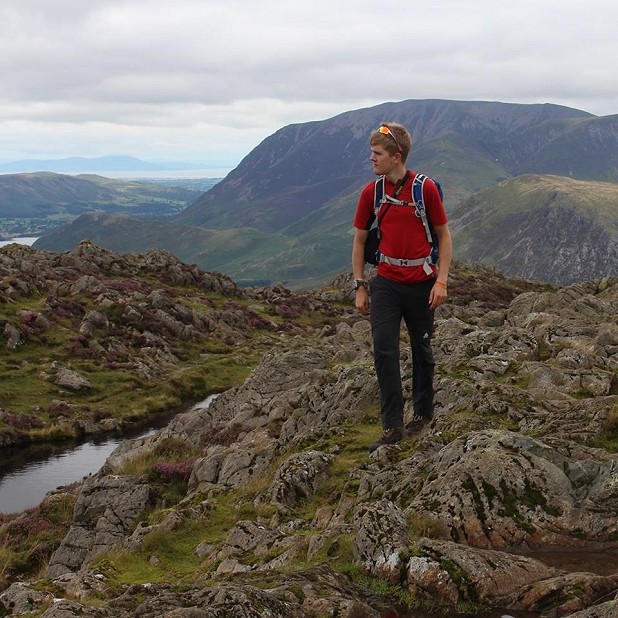
Healthy and sensible exercise is also a wonderful tool for dealing with feelings of stress and anxiety. For Abbie, climbing outdoors with friends is restorative, as it brings joy back to the sport and allows her to spend time in nature. Alex uses road and fell-running as a management tool to maintain a healthier relationship with food, a stress release and channelling his energy into something positive. He pointed out that outdoor activity helps to build our resilience; the ability to navigate, deal with terrible weather (which let's face it, happens to us all the time in the UK) and physically challenge ourselves gives us a greater appreciation for our bodies and minds. If we know we can deal with these open-air challenging situations, an eating disorder is just another challenge for us to battle.
It is not for us to act as mental health professionals (unless of course you are one!), but to be more mindful of what others and ourselves might be facing in life. Being open and honest is key. Non-judgemental listening, essential. An eating disorder is a mental health challenge, and we can strive to do our best to support those struggling. Hopefully, we will continue to rethink what eating disorders look like and that somebody battling an unhealthy relationship with food doesn't need to have been diagnosed with the label of an eating disorder for us to know how to support them.
Both Abbie and Alex continue to develop healthier relationships with food as they work towards their next big goals. Last year Alex took a year out from major challenges, receiving eating disorder therapy to enable him to take on new physical challenges. Abbie came to the end of therapy sessions last year and now feels confident and happy in managing her nutrition. Both Abbie and Alex have emphasised the significance of therapy as turning points in their journeys. Alex has just completed a 9-day run of the national Three Peaks:
Abbie is planning on entering more climbing competitions, both para and able bodied.
Thanks to Abbie and Alex for being open and honest about their relationships with eating. If you, or somebody you know, is struggling with an eating disorder or an anxiety disorder relating to food there are some fantastic resources online that might be helpful:
- Beat
- ABC (Anorexia & Bulimia Care)
- TRAIN BRAVE
- Inclusion in the Outdoors: A Survey 28 Apr, 2021

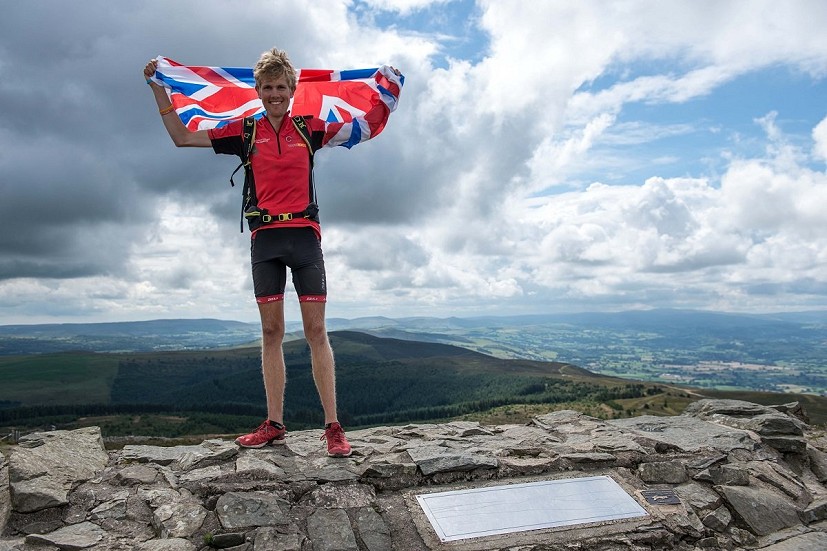
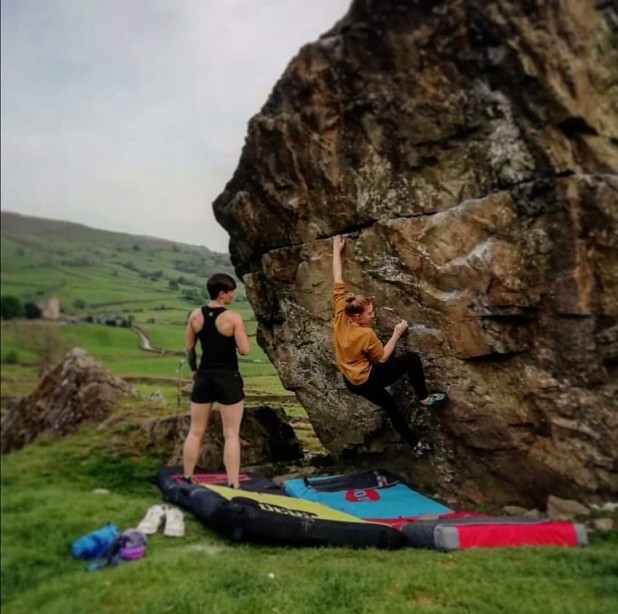
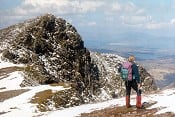


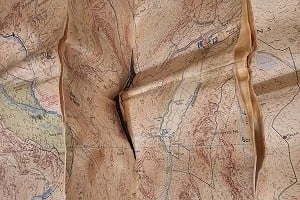

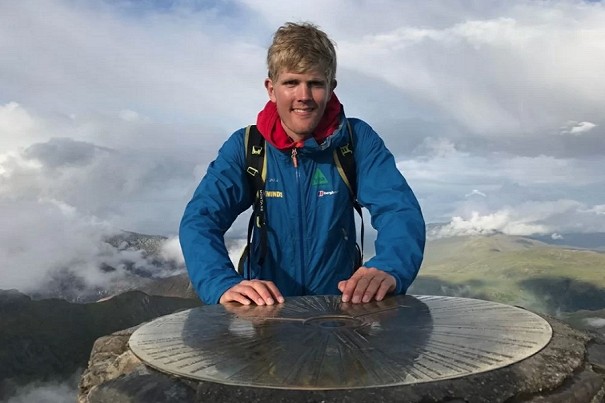
Comments
I never knew that Disordered Eating/Eating Disorders were so complicated or that prominent climbing athletes like the two in the article would suffer from them. Kudos to the two for being so open about it. Don't other sports have nutrition coaches? Would they be a good addition to the paraclimbing team or an ultra-distance runners' organisation?
Frankly climbing is absolutely riddled with it. The more you dig and ask questions (within a circle of stronger climbers, at least), the more people will start to admit the struggles they've had with disordered eating.
From my close circle of friends I could name at least 5 people who have sought professional help due to varying forms of disordered eating.
The underlying trend from every one of these (that I've had personal contact with) has been that they didn't fit the super skinny body type that the climbing community expects from stronger climbers and thereby fell into steadily more mechanical and controlled eating patterns to try to change this.
From a personal perspective, I climb at a reasonable level and do not have the skinny body that is expected. I get on average at least one comment about my body composition vs strength per session. This will usually take the form of 'Wow, you're really strong considering your size!' or 'How are you so much stronger when you weigh probably 15kg more than me?'
When I'm feeling patient I explain to the person why this isn't a compliment and isn't appropriate.
I can easily see how that sort of thing could affect the decisions of a young adult who wants to perform at their best. IMO If we want to handle this, we have to root out this sort of social commentary and kill it off.
‘Riddled, disordered, super skinny, circles of strong climbers, social commentary, root it out and kill it off’
A post lacking in empathy and understanding beyond self perspective.
The article itself is thoughtful, clear and accessible which is lovely to see. For those struggling that may want help, there is also an nhs early intervention service for 16-25 yr olds that’s being set up across the U.K.
https://freedfromed.co.uk
I'd agree completely with this. Obviously how hard you can climb is dependent on a few things but weight is one of the major ones if you are aiming to get really good, so it is not at all surprising that disorders are common in those climbing hard.
I remember there was a bit of chat a while ago about girls essentially slowing/halting changes as they went through puberty through a combination of training and eating - I think Natalie Berry wrote an article on it. I have to say that for a number of the top girls/young women currently, when I see climbing videos of them, between thinking "damn, if only I could do that, it'd be E8 on sights for breakfast!", a bit of me is thinking "that body shape/composition looks worrying".
I feel like it would have been useful to have a bulleted list of things that suggest you might have food/nutrition related issues. No list is going to be complete but the article explains some obvious signs, hints at others but also doesn't mention yet others. I think there was an opportunity to give a list at the end.
I know Alex loosely, chat to him at races and on social. Never knew he'd had eating problems until he surfaced it. Insidious stuff. He's not super skinny for the population of freaks we mix in, same with the climbing world. And that's part of the problem.